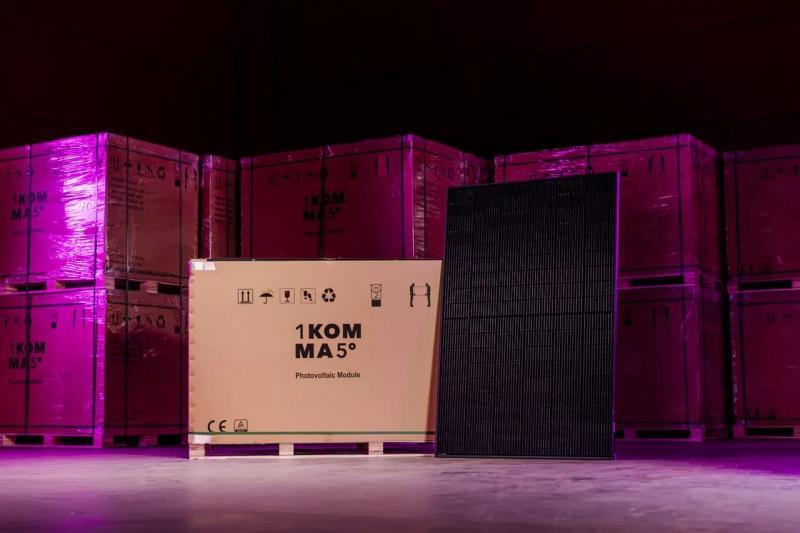
A new upper-end rooftop solar panel has landed on the Australian market, with the local arm of global solar electrification outfit 1komma5° announcing it can now start taking orders for its Europe-made Full Black module.
1komma5°, which last year set up shop in Australia after taking a controlling stake in NSW-based PV and battery outfit Natural Solar, started manufacturing its own panel components in Europe to combat supply chain, sustainability, and ethical concerns.
The result – sleek-looking all-black rooftop modules that offer peak power options of 415W, 420W and 425W and energy conversion efficiency of 21.5% – became available in Europe a few months ago.
Now, they are available to order in Australia.
According to the Natural Solar website, the modules use the latest TOPCon PV technology and offer warranties of 25 years for product and 30 years for performance.
But the company believes the biggest selling point for its full black modules is where they come from – and how they got here.
“The 1komma5° solar module is a testament to our mission statement of smashing CO2 emissions in the most sustainable and ethical way, while driving down electricity costs for our customers at the same time,” said Natural CEO Chris Williams in a LinkedIn post on Thursday.
The website offers a little more detail:
“The new panel is made using polysilicon from Wacker Chemie in Germany. Polysilicon is a critical raw material in solar panels and 1komma5° has procured supply from Wacker for the solar wafers and cells in its new all-black module.”
As Williams explained to One Step Off The Grid in June, this is important for a number of reasons, including the diversification of supply away from China, which currently dominates all segments of the global solar supply chain.
This domination of the solar supply chain is becoming a major cause for concern – particularly as global demand for panels ramps up exponentially – for being logistically, environmentally and ethically unsustainable.
In December 2022, the US-based Breakthrough Institute published a report that alleged polysilicon – the key ingredient in a solar panel – was being manufactured using the forced labour of Uyghur Muslims in Xinjiang, China.
A July 2022 report by the International Energy Agency (IEA) also highlighted environmental concerns, noting that in China, the energy-intensive conversion process that turns raw silicon into polysilicon is largely powered by coal.
“We’ve got the opportunity as a group, globally, to influence supply chains and to basically have a very positive influence on where the polysilicon is mined and how it is procured, how it is manufactured, which …also offsets a lot of that supply chain risk that we’re seeing,” Williams said in June.
According to Natural Solar, by sourcing polysilicon from Wacker Chemie, 1komma5° can guarantee a module with a roughly 50% lower carbon footprint compared to some Chinese competitors, through the use of renewables to power its operations.
Wacker also makes a selling point out of the claim that its product is free from forced labor practices.
“This emphasis on quality assurance and ethical production ensures that each 1KOMMA5° module meets the highest standards of both performance and reliability,” Natural Solar says.
“The modules also proudly stand on the Clean Energy Council’s list of approved, fire-tested solar photovoltaic (PV) modules suitable for installation under the Small-scale Renewable Energy Scheme (SRES). This recognition underscores the module’s reliability, performance, and compliance with rigorous industry standards.”
No word yet on the price, but Williams believes Australian consumers will increasingly opt to pay a little more for their home solar systems to ensure higher quality and ethically sourced products.
“It’s not just a solar panel that’s just x watts and produces x kilowatts-hours,” he told One Step.
“It really is more of a deep dive into … how does it operate? Who is it backed by? Where is it made? I think that’s why [Australia] is always a great market. We look forward to getting it on roofs.”

Sophie is editor of One Step Off The Grid and deputy editor of its sister site, Renew Economy. Sophie has been writing about clean energy for more than a decade.



